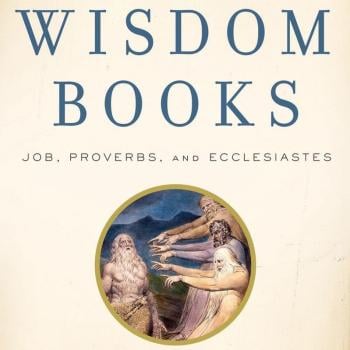A Very Jewish Jesusby larryhurtado |
Further to my previous posting concerning Sean Freyne’s excellent review of scholarship on first-century Galilee, I highlight here another of the valuable articles in the sample issue of the new journal, Early Christianity (vol. 1, 2010, issue 3): Roland Deines (Professor of NT in Nottingham University), “Jesus and teh Jewish Traditions of His Time” (pp. 344-71).
Deines has previous important contributions of his own to the topic of his essay, starting with his doctoral thesis, which focused on archaeological evidence of Jewish piety in Galilee, and on through a big study of the connection of “Torah-righteousness” and messianic hopes, and substantial essays on the Pharisees and the “common Judaism” of the time. In the limited space here, I will simply highlight a few of his observations and emphases in the Early Christianity article.
His first point is simply that Jesus’ Jewishness, though often downplayed or inadequately factored in scholarly studies, is of major importance. The growing recognition of Jesus’ Jewishness is part of a larger body of scholarly work on the Jewish setting of Jesus and earliest Christian circles. Sometimes referred to as “the new religionsgeschichtliche Schule” (although this probably exaggerates the connections of the various scholars involved, and Deines doesn’t use the term in this essay), we now have “New journals, monograph series and web-based projects [which] are witnesses to the copiousness of what was once called “Neutestamentliche Zeitgeschichte” (roughly, “NT Background”) but has long since left behind its narrow focus on the New Testament” (349). In assessing the net effect on our understanding of Jesus, Deines states, “He cannot be understood without the analogies provided by the Jewish world he lived in but at the same time he is not fully encapsulated by them” (351).
In what I think is the most intriguing part of his article, Deines focuses on an observation by Freyne that Jesus himself (and not only his followers) “might have been influienced by the Jewish Scriptures of his day” (360, citing Freyne, Jesus a Jewish Galilean, p. 19). Deines expresses astonishment that “in all the large works about Jesus [of recent vintage], one does not find a chapter on Jesus and Scripture” (363), and he prods readers with the question “to what extent the extensive use of [OT] Scripture in the New Testament and especially in the Gospels needs to be understood as a consequence of Jesus’ own application of Scripture to his ministry” (363). Deines further asks “should we then not assume that he understood his own life . . . as part of the ‘biblical’ history through which the God of Israel interacts with his people?” (364). In support, Deines observes, “If anything can be learned from the Jewish liteature in the centuries around the turn of the era it is that the Jewish Scriptures held such an unsurpassable authority that virtually all Jewish literature known today can be labelled as biblically inspired in one way or the other” (366).
Deines concludes with the provocative proposal that taking seriously Jesus’ indebtedness to, and inspiration from, the “biblical horizon” of Jewish Scriptures may open an avenue to a more exciting and profound engagement with the full depth of Jesus’ own religious imagination and sense of mission. This, Deines proposes, might also help explain why and how Jesus so early came to be regarded as a unique figure linked with God in an astonishing manner.
So, the net effect of Deines’ line of reasoning is that the flood of recent “historical Jesus” studies has perhaps not yet fully engaged the intriguing question of Jesus’ own sense of purpose and his relationship to the God of Israel. How to make solid progress on this matter . . . ah, that’s the question.














